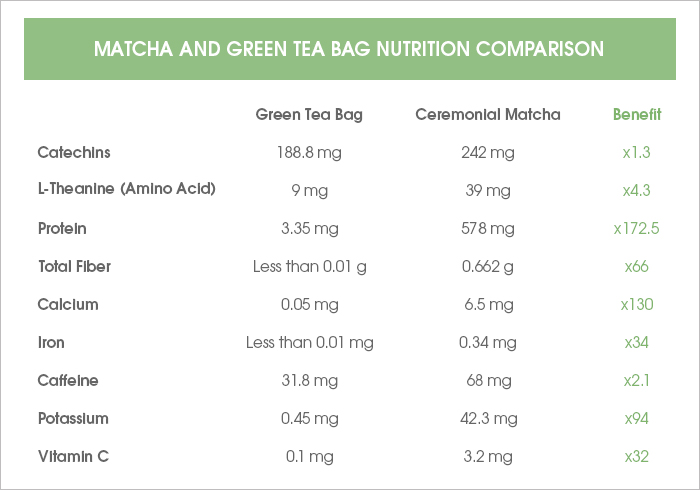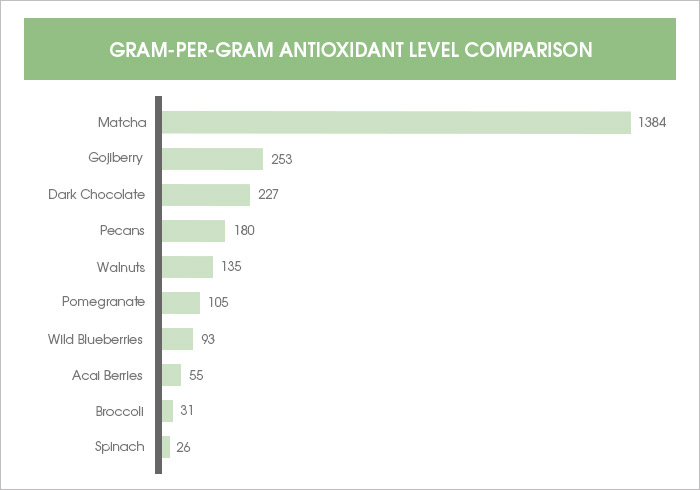100% WHOLE LEAF NUTRITION
100% WHOLE LEAF NUTRITION
When enjoying Matcha as a food or beverage, individuals consume the entire tea leaf in its powdered form. This allows the body to absorb 100% of the benefits, including antioxidants, amino acids, vitamins, minerals, and more. Compared to one serving of a regular green tea bag, Matcha drinkers receive high levels of water-soluble and water-insoluble nutrients. Green tea drinkers only consume the water-soluble nutrients, since the tea bag is typically discarded after one steeping.

Source: Standard Table of Food Composition: Japan Fourth and Fifth Revised and Expanded Edition. Aiya America Nutritional Analysis: Ceremonial Matcha (Eco Pro Research, Brunswick Lab, Covance Lab)
SUPER ANTIOXIDANT BOOST
SUPER ANTIOXIDANT BOOST
Matcha contains higher antioxidant levels on a per gram basis than any other known natural fruit or vegetable. ORAC test results show that one gram of Ceremonial Matcha green tea contains 1,384 ORAC units–about 15x the antioxidants available in one gram of wild blueberries.

Source: Journal of Agriculture and Food Chemistry, Lipophilic and Hydrophilic Antioxidant Capacities of Common Foods in the United States
NATURAL ENERGY BOOST
NATURAL ENERGY BOOST
One of the key components in Matcha is L-theanine, an amino acid found almost exclusively in shade-grown green teas. When L-theanine combines with the natural caffeine found in tea, it metabolizes the caffeine slowly and releases it over an extended period of time. One serving of Matcha contains about half the amount of caffeine found in coffee and provides a stable 3 to 6 hour long energy boost. Comparatively, coffee’s caffeine is released much quicker in a span of 1 to 1.5 hours.

 Welcome to Aiya's website! FREE standard shipping available for retail consumer orders over $50 & wholesale orders over $500 (U.S. and Canada).
Welcome to Aiya's website! FREE standard shipping available for retail consumer orders over $50 & wholesale orders over $500 (U.S. and Canada). 